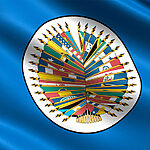The (dis)advantageous relationship between International Organisations and their host countries: the Austrian experience
The relationship between International Organisations (IOs) and their host countries creates some interesting legal and political issues which do not always sit happily together: on the one hand, IOs have broad autonomy and enjoy a remarkable number of privileges and immunities (which are generally a grey area for the host country’s authorities) yet, on the other hand, the IOs are an important resource for the host country in terms of economy and visibility.
In considering this relationship, the Latin expression “do ut des”, which means “give and receive” or, perhaps more accurately, “give to receive” is particularly relevant to the subject matter. In fact, in principle, hosting international organisations is convenient and “remunerative” but it implies the loss of sovereignty of the host country in some fields (e.g. see the extraterritoriality of the international premises) and the conferment of a number of privileges and immunities to the international organisations (inter alia, the immunity from national courts).
Privileges are exemptions from the otherwise applicable substantive law of a state, while immunities are usually regarded as exemptions from the administrative, adjudicatory, or executive powers of a state[1]. Typical privileges of IOs are partial exemptions from some areas of domestic law (such as taxes, customs, foreign exchange controls, immigration), the most common of which is the exemption from the obligation to pay any direct taxes for the IO itself and its employees (while for indirect taxes, reimbursement schemes are frequently agreed)[2]. However, the most important and significant immunity enjoyed by the IOs is that from legal suit, the so-called “jurisdictional immunity”, which can raise different interpretations but the existence of which is not controversial. What is controversial is its scope, i.e., whether it is absolute, restrictive or functional. Most treaties or agreements usually confer a functional immunity, which is not a crystal clear concept, especially for the national authorities that have to face the grey area of IOs’ immunities. It seems that, in practice, the concept of functional immunity frequently leads to a de facto absolute immunity[3].
While financial privileges’ disputes are mainly settled on a diplomatic level, the jurisdictional immunities have generated the most extensive case law in domestic court decisions, which provide “examples for judicial dialogues or conversations crossing national jurisdictional borders”[4]. National courts adopted different approaches to the jurisdictional immunity of IOs also in consideration of the legal system in place, i.e. common or civil law system, the first relying on precedent decisions, the latter on a “constant jurisprudence” that stems from codified legal sources. However, the common denominator is that national courts, in deciding whether to grant the jurisdictional immunity, rely on the availability of alternative dispute settlement methods. With the 1999 Waite and Kennedy v. Germany judgment of the ECtHR, the obligation for IOs to provide an alternative access to justice (namely, an effective internal justice system, comparable to the national one) has been directly linked to the awarding or not of the immunity from the national process. By way of a concrete example, if a national court can be persuaded that the existing mechanism within an IO is insufficient to afford the staff member proper protections of his or her employment rights, it could waive the IO’s immunity in the specific case and proceed to a judicial review of its internal justice system, with consequences on the immunities.
Therefore, in order to enjoy the privileges and immunities there is a “contractual exchange” whereby international organisations must fulfil their side of the bargain, by providing staff member who are subject to those immunities with access to appropriate and sufficient systems of justice as they might expect in domestic jurisdictions[5]. The privileges and immunities of international organisations cannot be considered inalienable if they conflict with the fundamental rights and principles of the host country, of the European Union and fundamental and basic principles of human rights. In short, immunities from legal suit do not give the IOs carte blanche to do as they see fit: this point is all the more pertinent where tortious harm has been caused to the staff member at the hands of the defendant organisation and the functional immunities from legal suit do not extend to such circumstances. The same concept applies to the immunity from enforcement measures, regularly enjoyed by IOs. Even if a domestic court is allowed to rule against an IO, the judgment cannot be directly enforced due to the Organisation’s strong immunity shield from enforcement measures. However, in this case, domestic courts have applied the Waite and Kennedy doctrine where the claimant does not have a reasonable alternative mean of enforcement.
On the other hand, being an International Organisation’s member state is commonly considered beneficial for both state and society, therefore being a host state creates particular advantages. The Austrian government described the presence of IOs in Vienna as an important goal of its foreign policy because it positively affects the country’s reputation and influence in international relations and has positive effects on the local economy.[6] Thus, Austria and the other countries hosting IOs have an interest in the smooth functioning of the Organisations present on their territory and in their freedom from unilateral interference, which generally originates from provisions in treaties and domestic legislation on IOs legal personality and their privileges and immunities. In this regard, it should be noted that Austria occasionally extends privileges and immunities to events related to IOs (such as seminars or meeting) or grants them to international entities whose status as IOs is uncertain such as, the OSCE, which is more a political organisation rather than an international humanitarian one and the CTBTO, which is a treaty signed and ratified by many countries but which cannot enter into force and become binding until all the nuclear technology holder countries sign and ratify it. However, Austria, throughout the years showed a balanced approach towards IOs’ immunities when those immunities negatively affected third parties’ rights, in particular their right of access to justice. In fact, in Austria the ECHR (see, in particular, article 6) enjoys constitutional rank (like in most civil law European legislations) and the access to justice is part of the treaty law such as, for example, the International Covenant on Civil and Political Rights (ICCPR 1966, in particular, article 4); in addition, it is considered a norm of customary international law, thus binding both IOs and States[7].
During the Cold War, Austria served as platform for international dialogue, due to its geopolitical position and its neutral status. This role of “international hub” was strengthened by the opening in 1979 of the Vienna International Centre (VIC), also called UNO City. Since then, Vienna is seat of the United Nations (UN), together with New York, Geneva and Nairobi. The idea of the VIC born in 1966, when the Government of Austria made an offer to the United Nations to construct in Vienna an International Centre to be used by organisations belonging to the United Nations system. In 1967, the Government of Austria and the city of Vienna jointly decided to assign an area on the left bank of the Danube as the site of the centre and in 1968 organised an international competition for the design of the buildings, which attracted the interest of architects worldwide and was in the end won by the Austrian Johann Staber. The Government of Austria (65%) and the city of Vienna (35%) shared the VIC construction costs (approximately 640 million Euros)[8]. The construction site began in 1972 and the VIC complex, which covers an area of 180,000 m² and has extraterritorial status, was inaugurated on 23rd August 1979. Separate agreements were signed by Austria and, respectively, IAEA and the United Nations (on behalf of UNIDO and the other United Nations entities in Vienna) on 28 September 1979. The Government of Austria handed over the VIC complex to the United Nations and IAEA for the symbolic rental sum of one Austrian schilling (equivalent to 0.07 euro today) a year for 99 years[9].
Over the years, the presence of international entities in Austria grew exponentially and it is now quite impressive: more than 40 IOs, financial institutions, diplomatic representations, NGOs and Quasi-NGOs are present on the Austrian territory and constitute an important economic factor, too. They employ more than 6000 employees, out of which about a quarter are Austrian citizens. According to a recent study by Ernst & Young, the sector spends about 725 million Euros per year, which result in a macroeconomic demand effect of about 1.4 billion Euros and thus contributes to GDP growth and Austria’s prosperity. In the long-term, all indicators demonstrate the economic benefit of the sector, in particular, conference activities increased by one third in the period 2010 – 2014[10]. In this regard, for example, the nuclear negotiations with Iran, successfully completed in Vienna in July 2015, and the “Syria talks” held since autumn 2015, generated a publicity value equivalent to 100 million Euros.
Further to encourage the settlement of International Organisations, Austria incentives also Non-Governmental Organisations (NGOs) to choose it as their seat. In fact, upon request of an organisation, the Federal Ministry for Europe, Integration and Foreign Affairs may grant the legal status of Non-Governmental Organisation by decree, on the legal basis of the Federal Law on the Granting of Privileges to Non-Governmental International Organisations. NGOs not only are an important expression of the civil society, they also enrich the thematic work of International Organisations. In relation to this, since 2016, NGOs have the possibility to apply for recognition as Quasi-International Organisations upon the fulfilment of certain requirements: the organisation must have non-profit character, its structure has to be similar to that of an IO, it must have permanent staff and an appropriately equipped office in Austria; in addition, its work must be related to the mandate of an established IO. On the other hand, the legal status of Quasi-International Organisation implies certain tax exemptions. A recent example of an organisation, which has been awarded the status of Quasi-International Organisation and that chose Vienna as its seat, is the “Sustainable Energy for All (SE4All)”. It started its activities in summer 2013 and established its permanent headquarters in Vienna in 2015. SE4All is headed by the Special Representative of the UN Secretary General for “Sustainable Energy for All” and therefore fulfils all the above-mentioned requirements[11].
Overall the relationship between IOs, NGOs and Austria can be described as extremely positive and fruitful for both parties. However, the other side of the medal is that the host country tends to avoid conflicts on the privileges and immunities granted to the IOs and on the “grey area” constituted by the jurisdictional immunity. Therefore, there is still room for a more regulated and transparent cooperation between the IOs and the national authorities in order to grant the IOs’ employees and, in general, the third parties involved in disputes with IOs, the full respect of their civil fundamental rights.
[1] A. Reinisch, International Organisations Before National Courts.
[2] A. Reinisch, The Privileges and Immunities of International Organisations in Domestic Courts.
[3] See supra note 2.
[4] See supra note 2.
[5] This is a well-established principle also in the Convention on the Privileges and Immunities of the United Nations. A commentary on the Convention by Professor August Reinisch states: “The de facto “absolute” immunity of the United Nations is mitigated by the fact that article VIII, section 29, of the Convention requires the United Nations to “make provisions for appropriate modes of settlement of: (a) disputes arising out of contracts or other disputes of a private law character to which the United Nations is a party”. The General Convention’s obligation to provide for alternative dispute settlement in case of the Organisation’s immunity from legal process can be regarded as an acknowledgment of the right of access to court as contained in all major human rights instruments.” (http://www.un.org/law/avl/ )
[6] A. Reinisch, The Privileges and Immunities of International Organisations in Domestic Courts.
[7] See supra note 6.
[8] Source: United Nations Office in Vienna (UNOV) website.
[9] See supra note 8.
[10] Source: Austrian governmental website – www.bmeia.gv.at
[11] See supra note 10.










